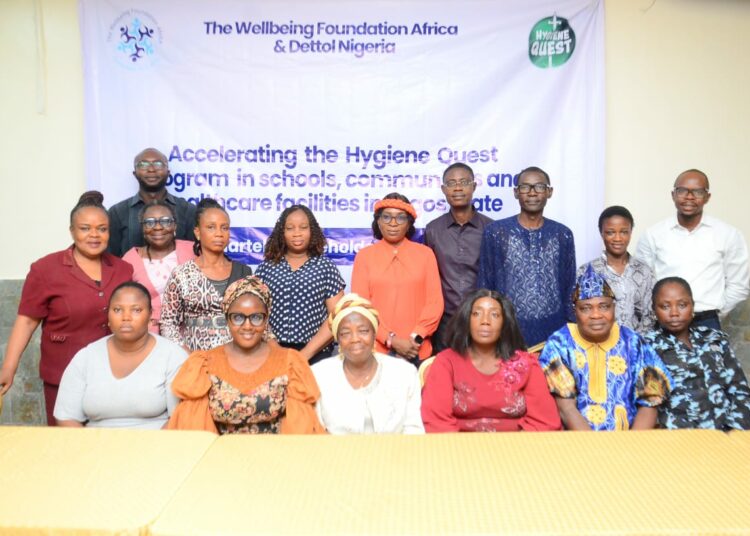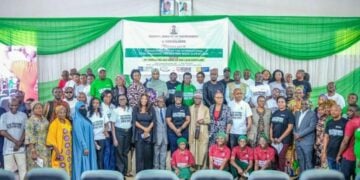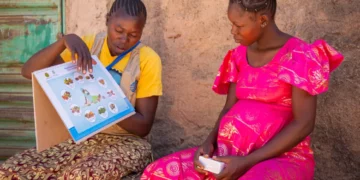A leading non-governmental organisation, The Wellbeing Foundation Africa (WBFA), has recorded an improvement in hygiene practices among residents of Lagos following the implementation of its hygiene programme.
Collaborating with Dettol Nigeria, the initiative has led to a marked increase in handwashing practices among students, health practitioners, education officials, and community leaders, along with lactating and pregnant women, through informative and engaging activities about the importance of handwashing and personal hygiene to maintain good health.
In its third quarter Dettol Hygiene Quest stakeholders meeting held in Lagos, it showed that the programme has made significant progress in Lagos for the third quarter of the year across communities, healthcare facilities, and schools where it’s being implemented.
In aspects of communities, the programme consolidated its gains from Q1, reaching 1,246 community members across 12 targeted communities, achieving 95 per cent of the quarterly target. In healthcare facilities, the programme exceeded its targets, conducting 109 visits against a target of 90 (113 per cent) and reaching 3,252 pregnant and lactating mothers, surpassing the target of 2,880 (113 per cent).
In schools, 42 schools were visited, representing 100 per cent of the quarterly target, and the program reached 27,007 students (12,986 males, 14,039 females), achieving 164.15 per cent of the targeted student population of 16,453. Additionally, the Teach Clean component commenced with 66 sessions conducted, training a total of 330 healthcare workers.
In his opening remarks, the Director of Programming and Reporting, WBFA, Mrilliams Awotunde, highlighted the significance of the Dettol Hygiene Quest Project, emphasising that hygiene is a fundamental pillar of health.
“By focusing on handwashing, we tackle one of the simplest yet most effective ways to prevent the spread of infectious diseases,” he noted. He stressed that the project is not only about imparting knowledge but also about fostering sustainable habits among schoolchildren, pregnant women, lactating mothers, and community members.
Recognising the pivotal role of healthcare workers in driving behaviour change, Awotunde mentioned the initiative’s inclusion of capacity-building sessions known as Teach Clean. These sessions empower healthcare workers with essential tools and knowledge, thereby enhancing the project’s impact throughout communities.
Awotunde underscored the collaborative nature of the meeting, describing it as an opportunity to reflect on progress, exchange insights, and chart a forward path for the initiative’s continued success. He lauded the stakeholders’ input, expertise, and support as invaluable in creating healthier environments for families and communities.
“Let us seize this moment to reaffirm our commitment to the principles of hygiene and preventive care, knowing that our efforts today will contribute to healthier futures for generations to come,” Awotunde stated.
Commissioner, Lagos State Ministry of Basic and Secondary Education, Jamiu Tolani Alli-Balogun, expressed his satisfaction with the WBFA program among schools in the state, saying this shows commitment to advancing the dual goals of quality education and holistic wellbeing for our children, an endeavour that is critical to the growth and future of our society.
Alli-Balogun highlighted WBFA’s dedication to addressing critical issues such as child health, nutrition, gender equity, and safe learning environments. This partnership aligns seamlessly with the ministry’s goals, aiming to create inclusive and equitable educational systems.
Other community leaders representing the program agreed that frequent handwashing with water and soap has contributed immensely to their families, and they will keep imbibing the practices.




